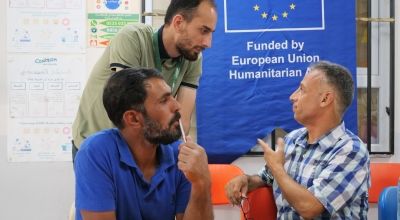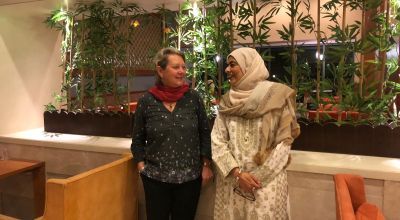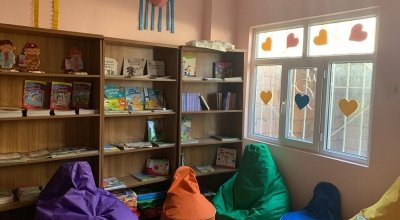
Read our 2023 annual report

Knowledge Hub
Syrians in Turkey: “We just want to go home”
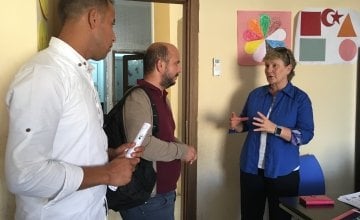
Turkey has become the world’s largest refugee host country with three million Syrians now living within its borders. What is life like for these displaced families living for years in a state of limbo? Following her visit to Turkey last week, Anne O’Mahony, Concern’s head of international programmes, reports.
As the war in Syria rages into its sixth winter, the casualties of this protracted crisis take many haunting forms. There are the civilians now trapped in Aleppo enduring horrendous bombardment. There are those who fled bombs from overhead only to tragically drown in the depths of the sea. And then there are the Syrians I met last week in southeast Turkey. These communities have found safety, however, as I saw last week, their lives are blighted by uncertainty, poverty and the trauma of displacement.
Significant efforts made by the Turkish government – including the provision of camps, free healthcare and access to education for those officially registered – mean that life has settled into something of a rhythm for some. However, among the millions who have streamed into Turkey, many have slipped through the cracks and are struggling to survive.
Struggling to meet basic needs
The best case scenario for employment among the refugees I met was casual work in agriculture – often strawberry or cotton picking – or construction. And they were the lucky ones. Fatima*, a widow to the war now raising 13 children alone, described how she struggles to meet the basic needs of her family. She combines the meagre and irregular income from her elder sons’ casual work with e-vouchers provided by Concern with the support of ECHO to keep her family going. Worth 400 Turkish Lira (around €120), our e-vouchers offer a regular and reliable means to purchase the basic food and hygiene products that her children – aged five to 29 – need.
Others I met had been far too badly maimed in the violence to ever work again. Faruuk* was paralysed from the waist down after being shot during crossfire in Syria four years ago. With no sensation in his legs, he later burnt his feet as he sat unknowingly too close to a living room fire. Faruuk is in constant pain, he told me. His days are spent outstretched on the floor of his modest two-room home, supported by his wife and sons. A few weeks ago, the Concern team delivered a food basket – including a month’s supply of basic items like rice and tuna – to ensure they have enough to last through October. The family hopes to soon begin receiving our monthly e-vouchers.
“We just want to go home”
Syrian children have lost up to five years of education amid conflict and displacement – this means that children as old as ten have never even set foot in a classroom. Understandably, the parents I met are desperate to ensure that their children enter formal education as soon as possible. However many don’t speak sufficient Turkish to even begin first grade there.
At the education centre I visited run by Concern with the support of UNHCR, the team is helping children to improve their Turkish before entering the school system. In three months, children like seven year old Hamada* will master the basics of the language and then graduate from our centre, ready for school.
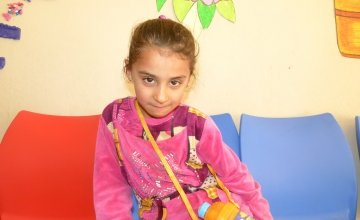
Apart from the obvious educational benefits, the centre encourages Hamada’s social integration – an important issue for a child whose development has been affected by trauma. Her father Waled*, a teacher himself, tells me that ensuring an education for his five children was the very reason he left his war torn homeland. Although Waled is happy that Hamada can continue her education, there are no perfect solutions for Syrian families like his in exile. Waled is dogged by the fear that learning in Turkish means that Hamada will have lost her mother tongue of Arabic “when the family returns home”.
Looking at the relentlessly grim news emerging from Syria, Waled’s faith in a return home might seem surprising to some. However his sentiment echoed the mantra of every single Syrian family I met in Turkey. “We just want to go home,” they pleaded, “We just want to go home”.
*Name changed for security purposes
You can help
With three million Syrian people in Turkey, resources are stretched and there is simply not enough to go around without the help of people like you. Your support could make all the difference.



